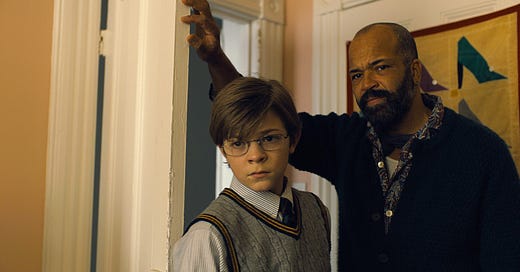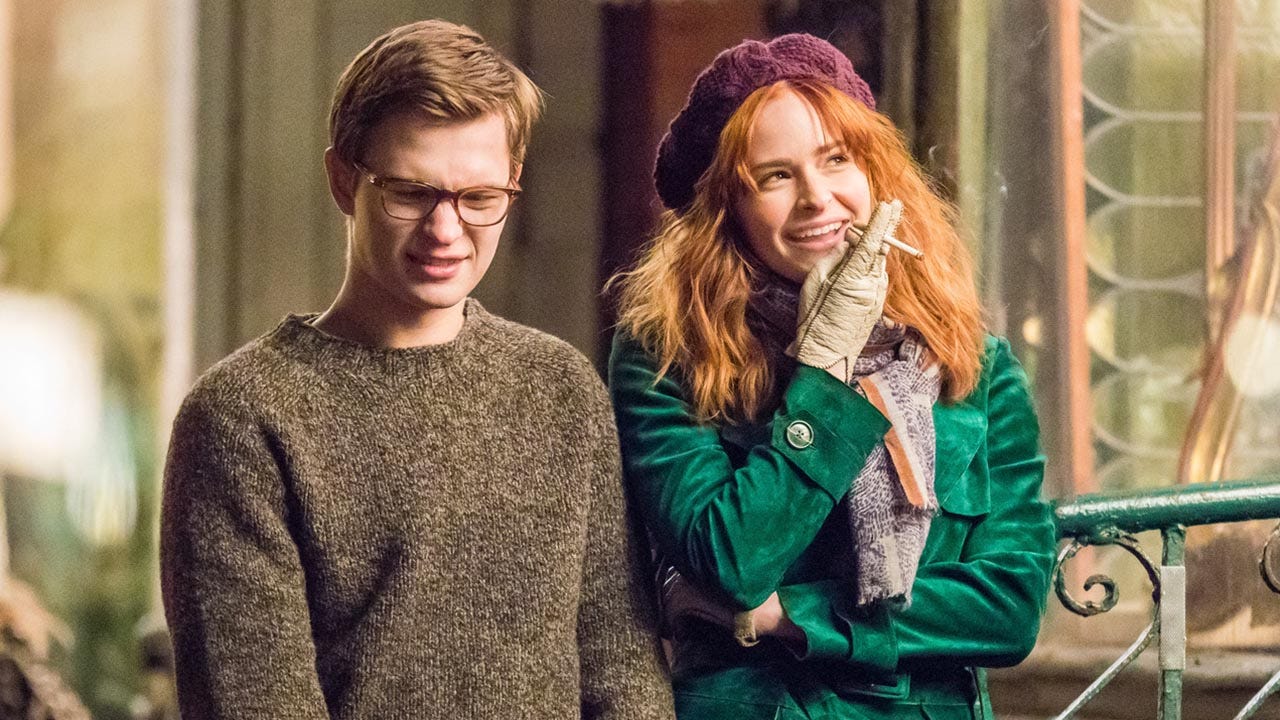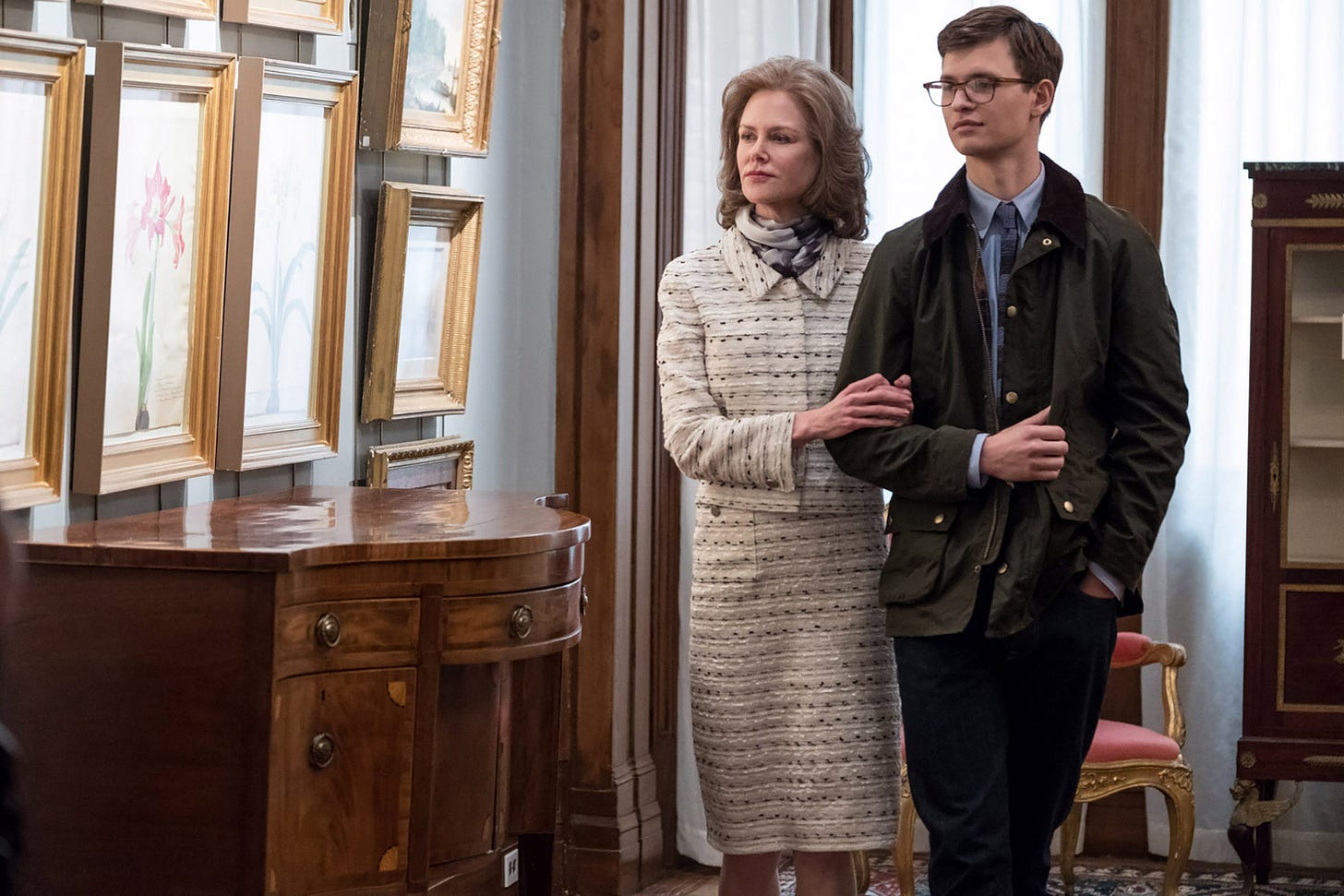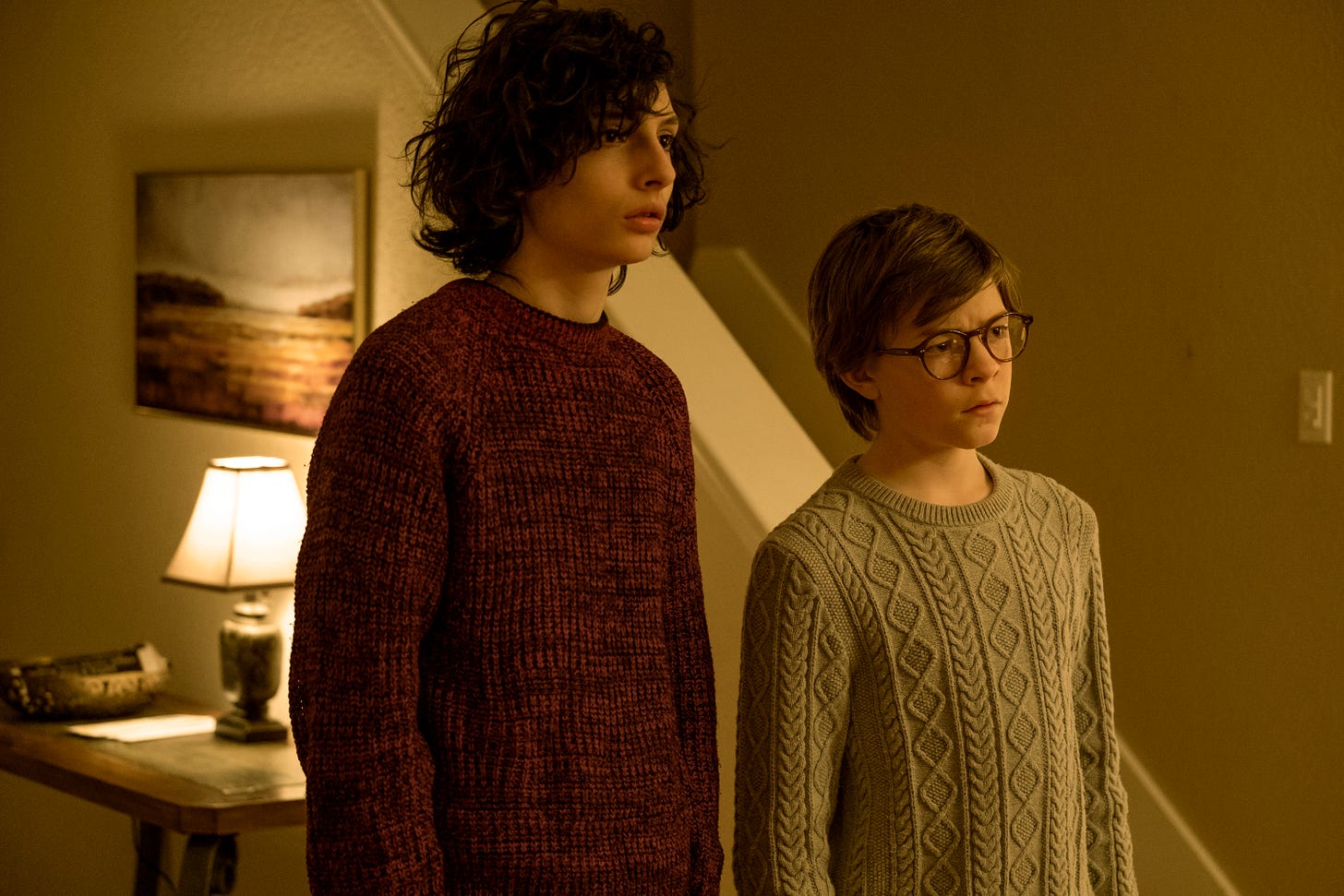A while back, I wrote of an insane experiment where I spent hours upon hours in prison creating fake movies with fake casts and fake directors. A considerable part of that involved adapting books I enjoyed into movies. I admit, however, at no point did I think it was worth adapting Donna Tartt’s gorgeous, insular “The Goldfinch”, a book that I felt should stay literature. The conflicts are too opaque, too much rests on a child, and then a young adult protagonist who watches events unfurl in front of him. The story spans a considerable amount of time, but there is very little actual “action”, either conventional physical struggle or proactive character decisions. I simply couldn’t picture the mammoth tome as a film.
Apparently director John Crowley and Warner Bros. disagreed, which is how we got an inexplicable big budget studio version of the story. Seriously, as someone who loved this book – an elegiac comic-of-age tale about a broken boy aging into a broken man, nervously over-cradling his ace in the hole – I really don’t understand how this could be a movie. They’re throwing me off even more with the casting of Ansel Elgort, an awkward non-entity of a leading man who has the soft edges of a pillow and the sex appeal of Donald Duck. Who owed someone a favor? Very quietly, “The Goldfinch” is the least-explicable movie made at a major studio over the last decade.
“The Goldfinch” rotates around an explosion that carved itself into the memory of young Theo. As a preteen, Theo survives a traumatic terrorist attack within the Metropolitan Museum Of Art, one that takes the life of his mother. With his father trapped on his own journey, Theo ends up with the Barbours, where the matriarch (Nicole Kidman) encourages his sensitive artistic side. He also finds a kindred spirit in local antique dealer Hobie (Jeffrey Wright), who easily warms to this wayward Upper East Side boy.
Unbeknownst to everyone, that bombing has a greater impact on Theo than anyone would guess. For one, he still holds an inarticulate guilt for his own decision to suggest to his mother that they should go to the museum. But there was also another crucial event that occurred within the mess of the explosion – Theo was quietly gifted a rare painting from a dying man, with which he fled. Even moving into a new home, even with a massive search for the painting, nobody guesses Theo has possession of this particular item. Considering the events that led to his possession of this gift, Theo claims it as a burden.
Before Theo can get close to attractive young Kitsey Barbour, who also survived the bombing, his father re-enters the frame. The novel came to life onscreen for me in that moment, because of the casting of Larry, Theo’s father. In the book, I imagined him as pathetic simply because of how painfully ordinary he was. He had left Theo’s mother because he was an impulsive gambler, but he didn’t fit the pop culture stereotypes. He was just a basic dope, a guy who had a hunch one night, won some money, and became a creature of habit. He has a moment in the book where he tries to coax some of Theo’s inheritance money out of the then-teenager by claiming it’s for a new restaurant, a diner. When Theo presses him on the investment, his father tells him it will be, “Good food. Well-made.” That has stuck with me for years now, the sound of a desperate liar, lost in inarticulation, too desperate to invent a good lie, too desperate to avoid disrespecting his own son. Basically, every Republican in Washington for the last ten years. Don’t @ me with your false equivalences.
Luke Wilson plays Larry, which is utterly perfect. Even before seeing the movie, I could see his slumped shoulders as he tries to convince himself that what he’s spewing isn’t a lie. I could see him seeming so defeated, so dejected that he fades into the wallpaper. Here, he shows up just to claim custody of Theo, taking him to a barren housing development in the desert of Vegas. I was really understanding Larry, until we learn of his new girlfriend Xandra. In the book, Xandra, young, overmedicated and oversexualized, is a familiar joke character at first who eventually is deepened as the story goes on, sort of a literary rope-a-dope. But in the movie, she’s played by a too-old Sarah Paulson as a serious character despite representing the farcical elements present in her initial moments in the book. It feels like it wants to be a sly bit of literary criticism, like the filmmakers here thought they could outsmart Donna Tartt by deconstructing a problematic character, only to turn her more conventional, and to miscast her completely.
Vegas serves the purpose of introducing Boris, Theo’s more colorful buddy. As played by Finn Wolfhard (one of the “Stranger Things”), the sleepy-accented Boris is a dead-eyed troublemaker who introduces Theo to bad behavior under the barely-there surveillance of Larry. Every performance in “The Goldfinch” is overly-mannered or deadening, so it’s a relief when Wolfhard shows up to add a little bit of mystery and fun to the proceedings, though unfortunately his shenanigans only mean that Theo grows up to be the deeply-uninteresting Elgort.
From then on, Theo basically straps in to the “Goldfinch” theme park ride, as the film surrenders to an absolute lack of narrative moment. He falls in love, maybe, falls out of love, chases a girl, and bonds with Hobie. At some point, the Goldfinch becomes important – the painting haunts every decision Theo makes in the book, but in the movie it’s only a convenient plot point to resurface whenever needed. It’s the problem in adapting a book like this, where everything seems to matter all the time on the page. Books can allow you to take multiple ideas into account at once, but mainstream movies with sizable budgets have to be like, “Look over here! Pay attention to this now! Hey, remember this?” In the book, the MET feels like a place that exists forever in Theo’s mind, the site of so many regrets and confusions, a place where his life forever changed, a place where he lost everything, a place that once meant something, and now means something deeply to everyone else trapped in the explosion. In the movie, the MET is just the place where Something Bad Happened.
The first half of the movie is so handsomely crafted and well-cast that you think this might all amount to something. But the sludgy pacing isn’t helped by the protagonist growing up into becoming Ansel Elgort. What is it with this guy? His small eyes and puffy lips make it look like someone gave another go at making a new Eddie Redmayne, as if one wasn’t more than enough. In all of Elgort’s movies (including “Baby Driver”, which I saw eleventy billion times in prison thanks to basic cable – the bit where he gets out of federal prison for “good behavior” always prompts laughs), the camera gazes on him and expects his face to deliver emotion. Instead, I’m just wondering, wait, is he upset, is he scared, is he confident? I get nothing from this kid, which explains why colorful costars are always attempting to steal movies from him. “The Goldfinch” has a strong cast, but it’s so sterile and absent of character (why is it even rated-R?) that nothing ever threatens to take the movie from Elgort. And like the “Goldfinch” painting, it’s a movie just begging to be stolen.
“The Goldfinch” plays better on paper than it does in live action, because the fact is you’re watching a terribly-dramatic film about a New York City boy raised in wealth who nonetheless obtains a considerable inheritance. As the movie goes on, you realize that extremely-expensive painting is just burning a hole in his pocket, a Chekov’s Gun that could potentially net this sad well-off boy even more money. Money can’t buy happiness, but it can certainly afford you more opportunities to find happiness. Some good people still know this.
In prison, there are a lot of broke people. The prison classifies them as indigent, but that only means that they’re given toiletries, toothpaste, actual necessities. It doesn’t meant that these men eat as much as everyone else. I’ve seen these men reduced to stealing, cheating, brutality. I’ve also seen them accept their fate and waste away, too frightened that getting out of bed will cost them. These men and women exist in a hostile environment. So I’m posting this link just to remind you that these people are prisoners, PRISONERS, and they deserve the mercy we can give them. Please do not forget this.









I hadn't heard that about Pope Francis. I have a very low opinion of organized religion, but some of its' adherents do get, and live, the message.